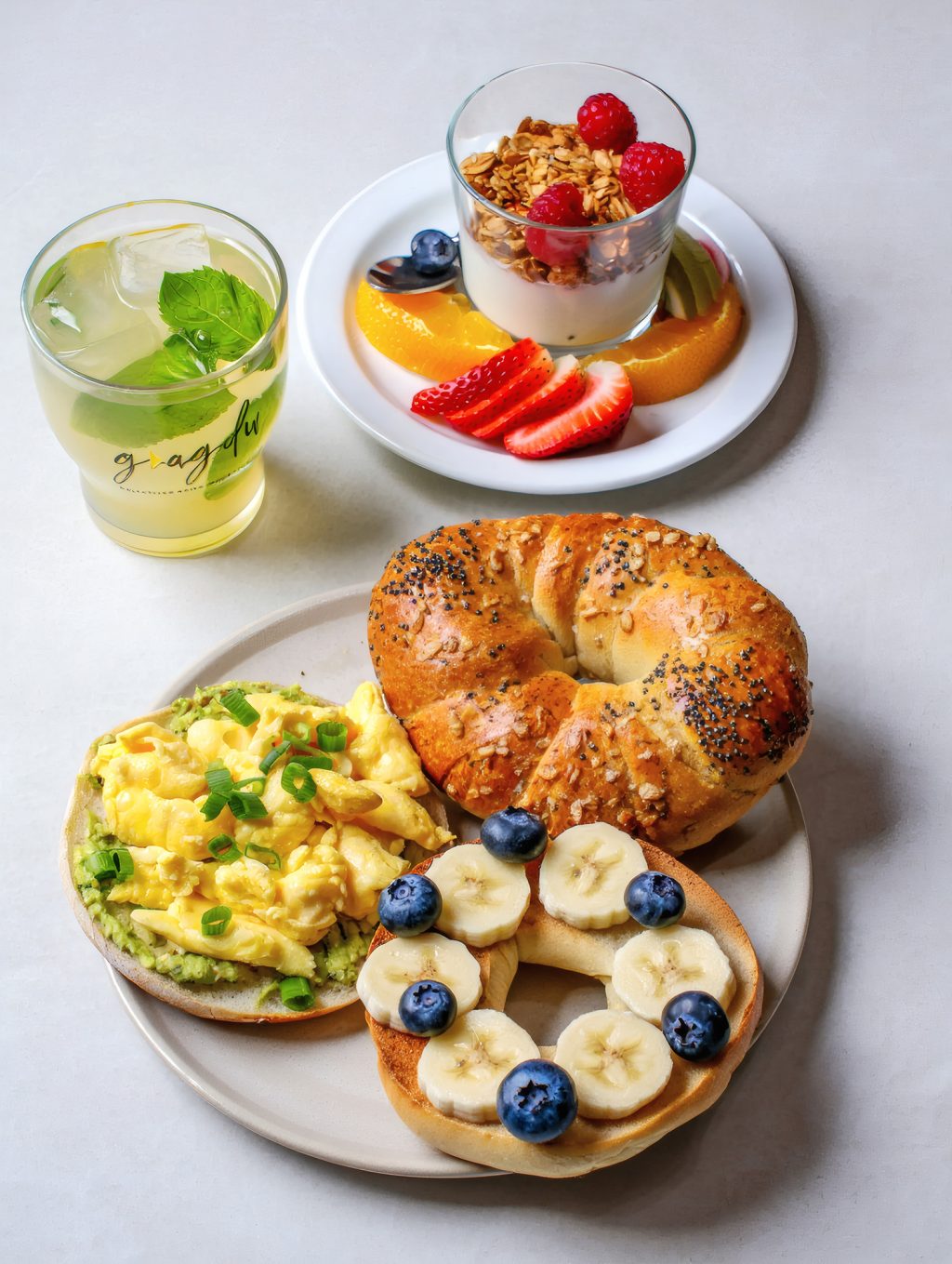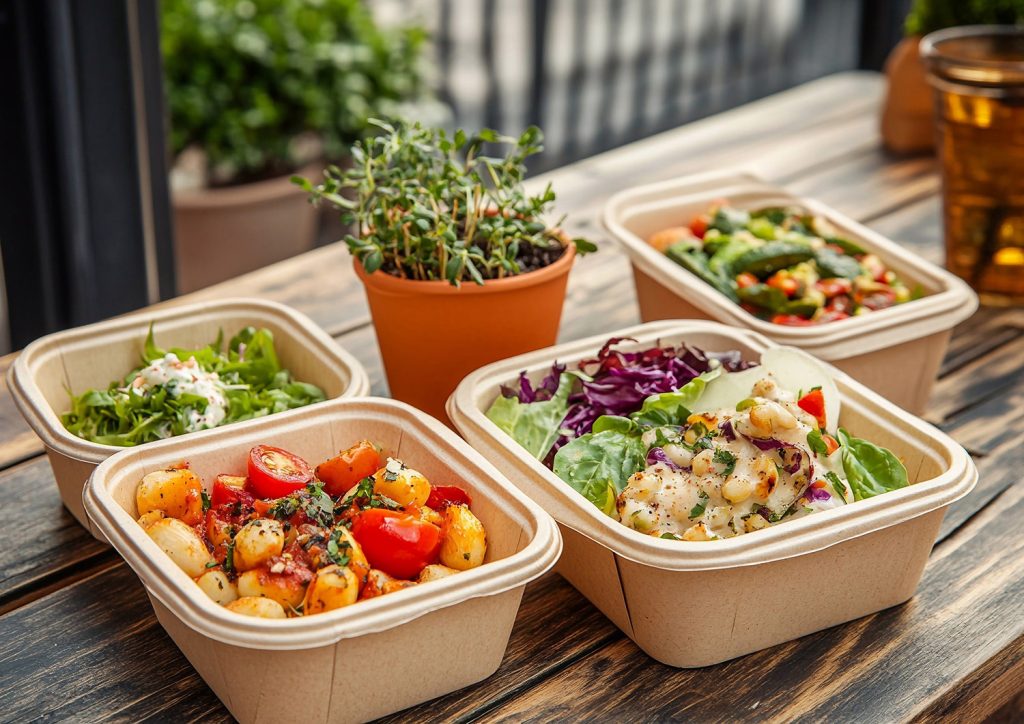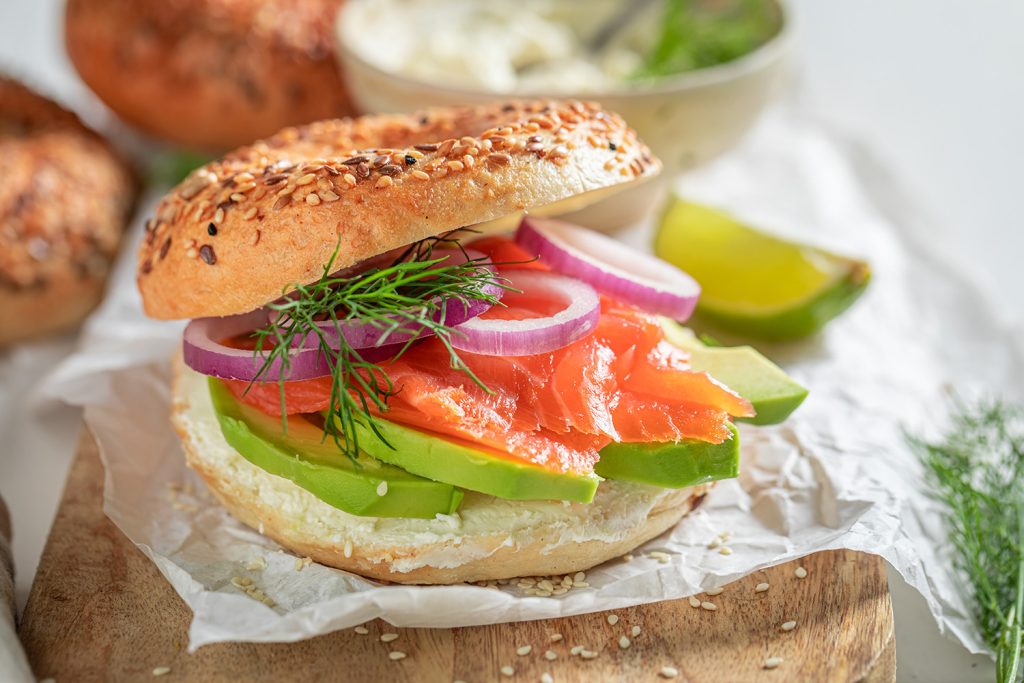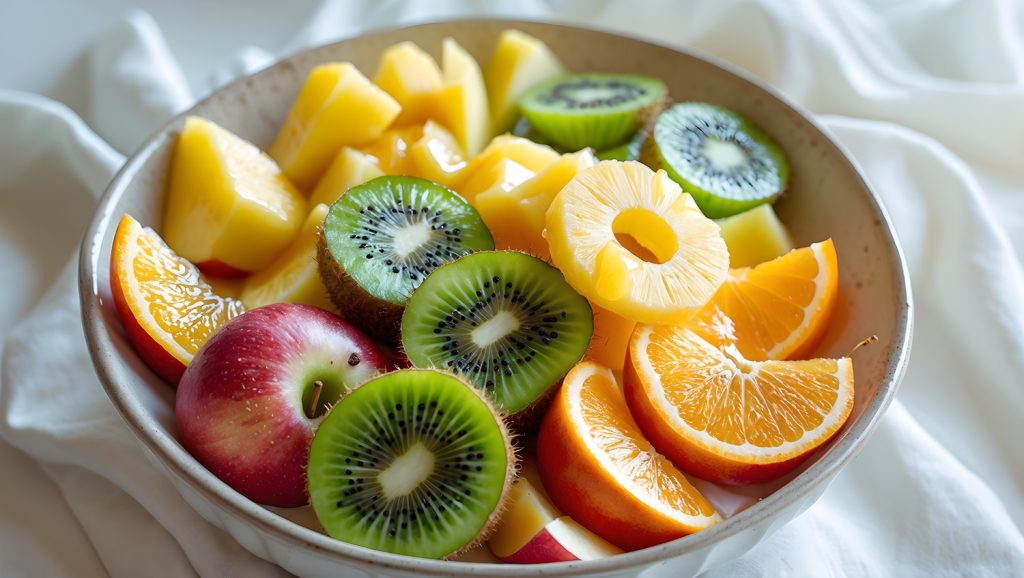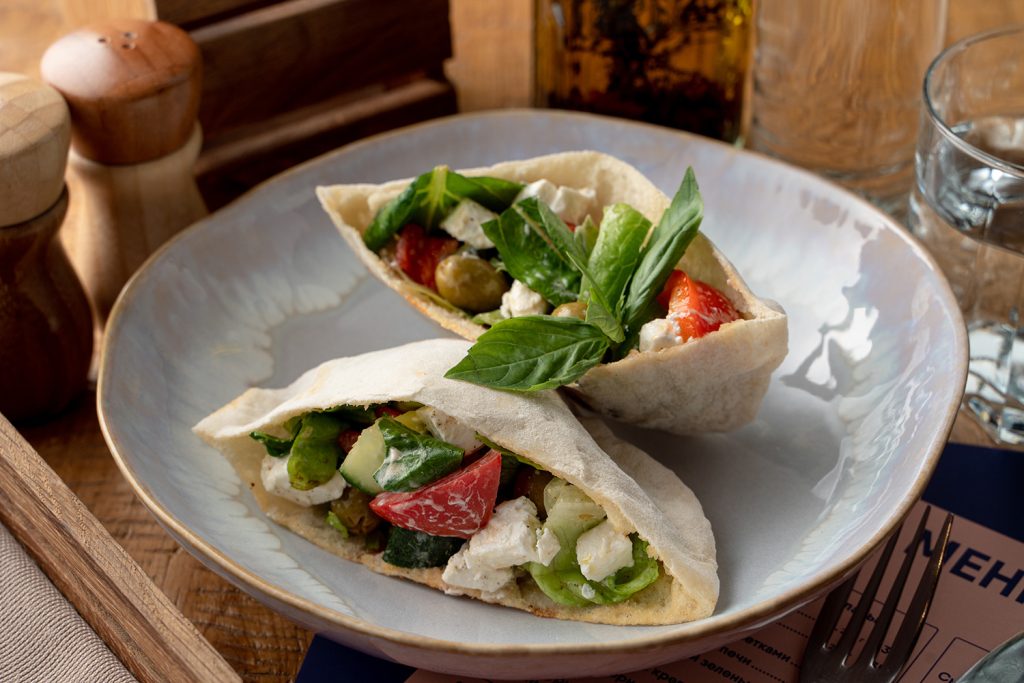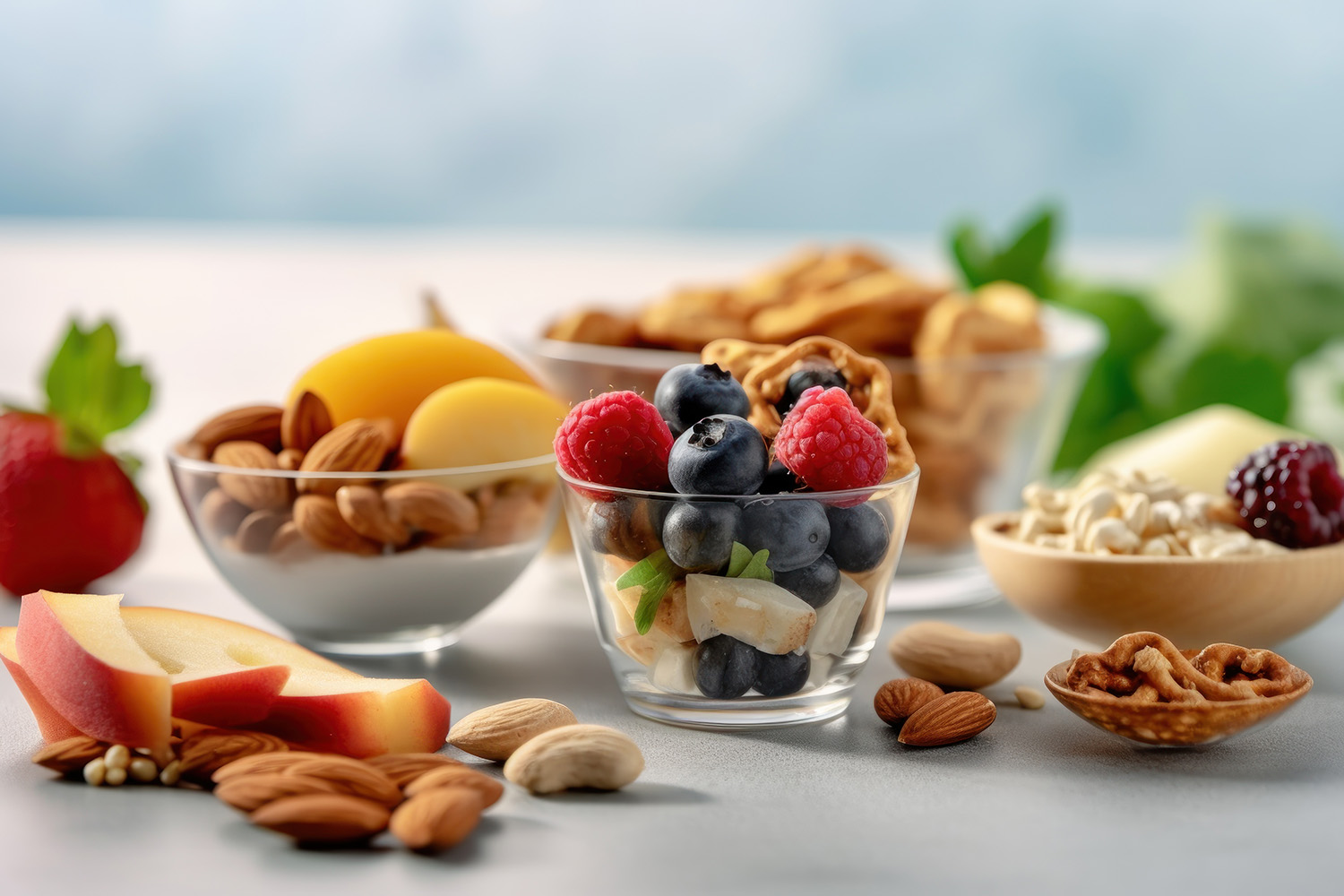
60 second summary:
- Instead of ready-made snacks like biscuits and crisps, think of snacks as mini meals
- Try to include the main food groups (carbohydrate, veg/fruit, protein and dairy) in smaller portions
- Make up healthy snacks and store them in the fridge so you and your family can ‘grab and go’
- Set aside time for a snack to avoid constant grazing from the kitchen
- If children are still asking for food after they’ve eaten, ask them to check in with their tummy to see how full it feels to help them understand their appetite
As we head towards the long summer break, you might be thinking about how to feed your family during the day. Constant requests for snacks or frequent visits to the kitchen are a familiar experience during holiday times. Here’s how to keep everyone topped up without relying on lots of expensive and often less healthy snacks.

Snacks or mini meals?
Rather than crisps or biscuits which might be tasty but aren’t very filling (plus they’re high in sugar, saturated fat and salt), think of snacks as mini meals.
Try to incorporate two or three of the following food groups in smaller portion sizes than for a meal: a starchy carbohydrate food, a protein food, a fruit or vegetable and a dairy food (or dairy-free alternative). Here are some examples:
- Half a wholemeal pitta, wrap or sandwich with chicken, tuna or hummus with cucumber and tomato
- A thin bagel with peanut butter and sliced banana
- A hot cross bun or scone with grapes
- Natural or Greek yoghurt with chopped up fruit and seeds
- Wholemeal pasta salad with pesto, cherry tomatoes and tuna (small portion)
Plan ahead
When people, particularly children, feel hungry, they are often tempted to grab a quick, ready-to-eat snack, such as a chocolate bar, cake, or bag of crisps. If you pre-prepare some of the above snacks and have them ready to grab and go from the fridge, you can avoid children making less healthy choices every day.
Having colourful fruit, chopped and ready to eat, can also stop children from resorting to biscuits.
You can also create a snack mix that incorporates some of their favourite foods, alongside some healthier options, so they don’t feel like they’re missing out. Try mini pretzels and breadsticks, low-sugar breakfast cereals, dried fruit and nuts with chocolate buttons, for example.
The language of food
How we talk about food and the boundaries we set can be very powerful, particularly when young children are developing their relationship with food. It’s important to avoid labelling some foods as “bad for you” or “junk” because all food, even cakes and biscuits, can fit into a healthy diet. It’s just that some foods are best eaten more frequently than others.
As a parent or carer of younger children, you control when and what they eat, but it is up to the child whether and how much they eat, so allow them to decide how they manage their appetite.
When it comes to snacking, if they frequently ask for less healthy foods, you can say, “We are having a biscuit with our snack tomorrow”, and make sure to follow through with this. Offer ‘occasional foods’ like biscuits, cakes, crisps, etc., once or twice a week, alongside healthier snacks.
You can even position the kitchen as a café, which is closed at certain times of the day. If you plan to eat a snack together and make an occasion of it with the kitchen being closed at other times, it builds up anticipation and is also a good way to fend off repeated requests for food, which can often come from boredom rather than hunger.
Finally, teach children to listen to their appetite. If they are asking for snacks soon after having eaten, ask them to think about how full their tummy feels and whether they are actually hungry. Explaining when the next meal or snack time will be can also help.
Remember, active, growing children are going to be hungry, so having healthy snacks ready can avoid constant grazing on biscuits and crisps, keeping tummies fuller for longer and fuelling their growth.
Claire Baseley – Consultant Nutritionist
